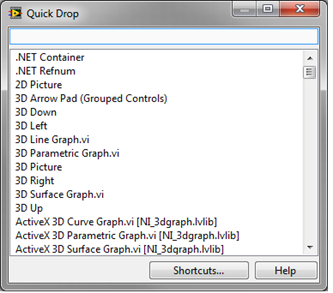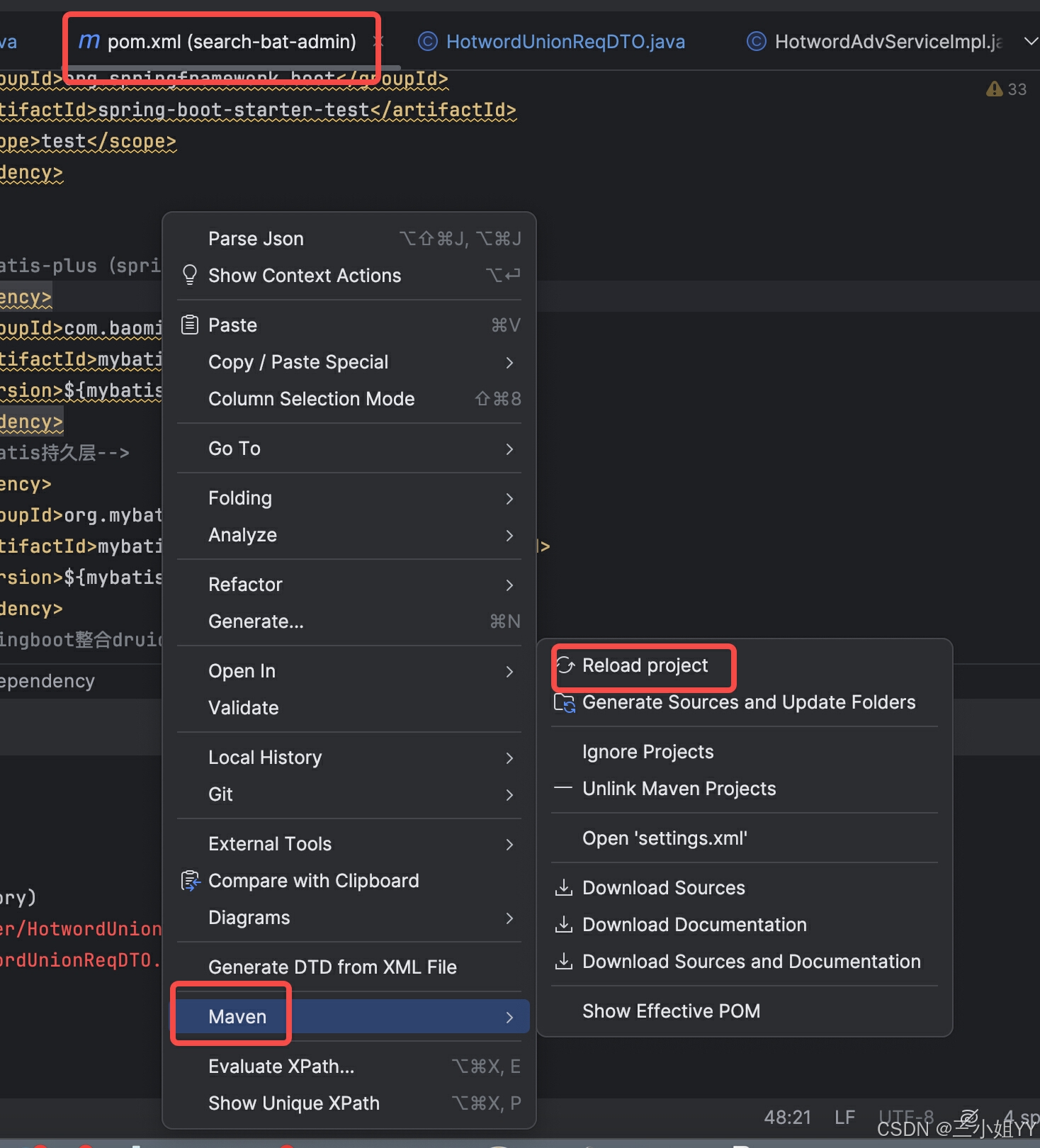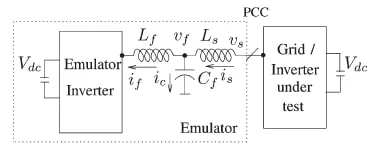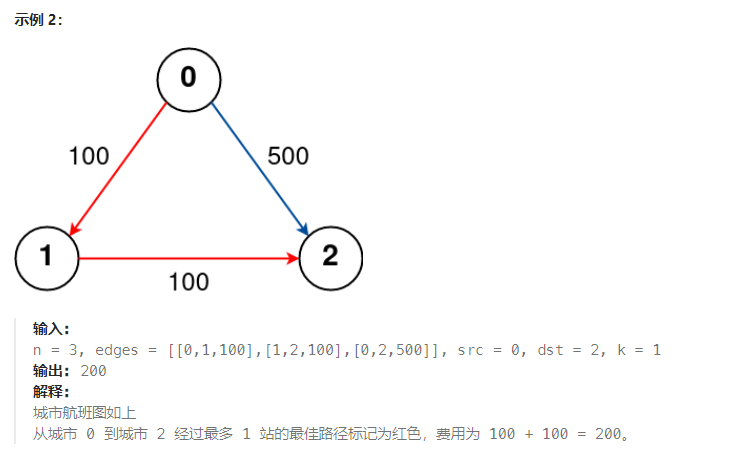STM32G474读写FLASH主要用来将FLASH的部分页用来存储用户数据,以及分析是如何将“主FLASH存储器”作为引导区。
1、FLASH说明
STM32片内的FLASH分成两部分:主存储块、信息块。
“主FLASH存储器”用来存放用户程序,也就是我们写的程序,都存放在这里。
“信息块”分为两部分:系统存储器和选项字节。
“系统存储器”用于存放“启动程序(BootLoader)”,当使用ISP方式加载程序时,就需要执行这个程序。这个区域由ST公司写入BootLoader,然后锁死,用户是无法改变的。
“选项字节”用来存储芯片的配置信息,以及“主FLASH存储器”的保护信息。
STM32G474RE的“主FLASH存储器”有两个独立的BANK,分别是BANK1和BANK2;
FLASH映射选择:
通过配置SYSCFG_MEMRMP寄存器bit8(FB_MODE),则可以实现FLASH映射;
FB_MODE=0表示BANK1映射到0x08000000地址处,BANK2映射到0x08040000地址处;
FB_MODE=1表示BANK2映射到0x08000000地址处,BANK1映射到0x08040000地址处;
可见BANK1和BANK2均为256K字节,合计为512K字节
默认是将BANK1映射到0x08000000地址处,一般不要去修改这个配置。
每个BANK有256页,每页有2K字节。因此,BANK1有256页,编号从0~255,同样,BANK2也有256页,编号从0~255。
存储器重新映射选择:
通过配置SYSCFG_MEMRMP寄存器bit2:0(MEM_MODE),则可以实现“RAM”映射;
MEM_MODE=000b表示“主FLASH存储器”映射到0x00000000地址处;
MEM_MODE=001b表示“系统FLASH存储器”映射到0x00000000地址处;
MEM_MODE=010b表示“FSMC存储器”;当将FSMC重新映射到地址0x00000000地址处时,只能将Bank1内存控制器的前两个区域
(Bank1 NOR/PSRAM1 和 NOR/PSRAM2)进行重新映射。在重映射模式下,CPU可以通过ICode总线来访问“外部内存”,而不是系统总线,从而提高了性能。
MEM_MODE=011b表示“SRAM1”映射到0x00000000地址处;
MEM_MODE=100b表示“QUADSPI存储器”映射到0x00000000地址处;
MEM_MODE=101b保留
MEM_MODE=111b保留
2、分析如何将“主FLASH存储器”作为引导区
“选项字节”Securable memory area Bank 1 option bytes,其地址为0x1FFF7828,ST公司出厂值为0xFF00FF00,因此
BOOT_LOCK=0,SEC_SIZE1[7:0]=00
“选项字节”User and read protection option bytes
其地址为0x1FFF7800,ST公司出厂值为0xFFEFF8AA

分析和启动有关的位
bit29:28 NRST_MODE[1:0]=11b表示双向复位:NRST引脚被配置为复位输入/输出模式;
bit27 nBOOT0=1
bit26 nSWBOOT0=1
bit23 nBOOT1=1
我们也可以通过修改“FLASH_OPTR寄存器”来切换引导区。
“主FLASH存储器”作为引导区:
1)、当BOOT_LOCK=1时,则选择“主FLASH存储器”作为引导区;因此和BOOT0引脚无关,这是可以将BOOT0引脚用作普通IO。
2)、当BOOT_LOCK=0,BOOT0引脚为低电平,nSWBOOT0位等于1时,则选择“主FLASH存储器”作为引导区;因此我们在电路中,通常将BOOT0引脚通过10K电阻接地。
3)、当BOOT_LOCK=0,nBOOT0位等于1,nSWBOOT0位等于0时,则选择“主FLASH存储器”作为引导区;因此和BOOT0引脚无关,这是可以将BOOT0引脚用作普通IO。
“主FLASH存储器”作为引导区,我们一般将BOOT0引脚通过10K电阻接地。
“SRAM1”作为引导区:
1)、当BOOT_LOCK=0,BOOT0引脚为高电平,nBOOT1位等于0,nSWBOOT0位等于1时,则选择“SRAM1”作为引导区;因此我们在电路中,通常将BOOT0引脚接高电平。
2)、当BOOT_LOCK=0,nBOOT0位等于0,nBOOT1位等于0,nSWBOOT0位等于0时,则选择“SRAM1”作为引导区;因此和BOOT0引脚无关,这是可以将BOOT0引脚用作普通IO。
“SRAM1”作为引导区,在使用在线debug时用到,由JLINK去完成配置,也和我们无关。
“系统存储器”作为引导区:
1)、当BOOT_LOCK=0,BOOT0引脚为高电平,nBOOT1位等于1,nSWBOOT0位等于1时,则选择“系统存储器”作为引导区;因此我们在电路中,通常将BOOT0引脚接高电平。
2)、当BOOT_LOCK=0,nBOOT0位等于0,nBOOT1位等于1,nSWBOOT0位等于0时,则选择“系统存储器”作为引导区;因此和BOOT0引脚无关,这是可以将BOOT0引脚用作普通IO。
“系统存储器”作为引导区,它是由ST公司用来写入BootLoader,和用户关系不大。
3、使用FLASH保存用户数据演示程序
FLASH.c程序
#include "FLASH.h"
#include "stdio.h" //getchar(),putchar(),scanf(),printf(),puts(),gets(),sprintf()
#include "LED.h"
#include "stm32g4xx_hal_flash.h"
#define FLASH_USER_START_ADDR ADDR_FLASH_PAGE_255 //用户使用FLASH的起始地址
#define FLASH_USER_END_ADDR (ADDR_FLASH_PAGE_255 + FLASH_PAGE_SIZE - 1)
//用户使用FLASH的结束地址
/* Table used for fast programming */
#define FLASH_ROW_SIZE 32
const uint64_t Data64_To_Prog[FLASH_ROW_SIZE] = {
0x0000000000000000, 0x1111111111111111, 0x2222222222222222, 0x3333333333333333,
0x4444444444444444, 0x5555555555555555, 0x6666666666666666, 0x7777777777777777,
0x8888888888888888, 0x9999999999999999, 0xAAAAAAAAAAAAAAAA, 0xBBBBBBBBBBBBBBBB,
0xCCCCCCCCCCCCCCCC, 0xDDDDDDDDDDDDDDDD, 0xEEEEEEEEEEEEEEEE, 0xFFFFFFFFFFFFFFFF,
0x0011001100110011, 0x2233223322332233, 0x4455445544554455, 0x6677667766776677,
0x8899889988998899, 0xAABBAABBAABBAABB, 0xCCDDCCDDCCDDCCDD, 0xEEFFEEFFEEFFEEFF,
0x2200220022002200, 0x3311331133113311, 0x6644664466446644, 0x7755775577557755,
0xAA88AA88AA88AA88, 0xBB99BB99BB99BB99, 0xEECCEECCEECCEECC, 0xFFDDFFDDFFDDFFDD};
void Print_Flash_Parameter(void);
void Test_Flash_Write(void);
void Test_Flash_Read(void);
void Test_Flash_Write2(void);
void Test_Flash_Read2(void);
//FALSH有524288bytes=512K
//FALSH有2个BANK,每个BANK有262144bytes=256K,每个BANK有128页,每页有2048bytes=2K
void Print_Flash_Parameter(void)
{
printf("\r\nFLASH_BASE=0x%08X\r\n",(uint32_t)(FLASH_BASE) );
//FLASH_BASE=0x08000000
printf("Bank1 and Bank2 have %u bytes\r\n",(uint32_t)(FLASH_SIZE) );
//Bank1 and Bank2 have 524288 bytes
printf("Bank has %u bytes\r\n",(uint32_t)(FLASH_BANK_SIZE) );
//Bank has 262144 bytes
printf("Page has %u bytes\r\n",(uint32_t)(FLASH_PAGE_SIZE) );
//Page has 2048 bytes
printf("BANK has %u pages\r\n",(uint32_t)(FLASH_PAGE_NB) );
//BANK has 128 pages
}
//函数功能:读取“BANK的ID号码”
uint32_t GetBank(uint32_t Addr)
{
uint32_t bank = 0;
if (READ_BIT(SYSCFG->MEMRMP, SYSCFG_MEMRMP_FB_MODE) == 0)
{//如果“BANK1”和“BANK2”没有交换,No Bank swap
if (Addr < (FLASH_BASE + FLASH_BANK_SIZE))
{
bank = FLASH_BANK_1;//记录当前地址位于“BANK1”
}
else
{
bank = FLASH_BANK_2;//记录当前地址位于“BANK2”
}
}
else
{//如果“BANK1”和“BANK2”交换,Bank swap
if (Addr < (FLASH_BASE + FLASH_BANK_SIZE))
{
bank = FLASH_BANK_2;//记录当前地址位于“BANK2”
}
else
{
bank = FLASH_BANK_1;//记录当前地址位于“BANK1”
}
}
return bank;
}
//函数功能:读取“Page的ID号码”
uint32_t GetPage(uint32_t Addr)
{
uint32_t page = 0;
if (Addr < (FLASH_BASE + FLASH_BANK_SIZE))
{
page = (Addr - FLASH_BASE) / FLASH_PAGE_SIZE;
}
else
{
page = (Addr - (FLASH_BASE + FLASH_BANK_SIZE)) / FLASH_PAGE_SIZE;
}
return page;
}
void Test_Flash_Write(void)
{
uint32_t BankNumber = 0;
FLASH_EraseInitTypeDef pEraseInit;
uint32_t PageError = 0;
uint32_t Address = 0;
uint32_t src_addr;
HAL_FLASH_Unlock();
//FLASH解锁,允许访问闪存控制寄存器
//Unlock the Flash to enable the flash control register access
__HAL_FLASH_CLEAR_FLAG(FLASH_FLAG_OPTVERR);
//清除OPTVERR位
//Clear OPTVERR bit set on virgin samples
pEraseInit.TypeErase = FLASH_TYPEERASE_MASSERASE;
pEraseInit.Banks = GetBank(FLASH_USER_START_ADDR);//指定待擦除的BANK
if (HAL_FLASHEx_Erase(&pEraseInit, &PageError) != HAL_OK)
{
printf("Erase Error!!\r\n");
while (1)
{
LED1_On();
HAL_Delay(100);
LED1_Off();
HAL_Delay(1000);
}
}
Address = FLASH_USER_START_ADDR;
src_addr=(uint32_t)Data64_To_Prog;
printf("Address=0x%08X\r\n",Address);
printf("src_addr=0x%08X\r\n",src_addr);
while (Address < FLASH_USER_END_ADDR)
{
if (HAL_FLASH_Program(FLASH_TYPEPROGRAM_FAST, Address, (uint64_t)src_addr) == HAL_OK)
{//TypeProgram = FLASH_TYPEPROGRAM_DOUBLEWORD,将src_addr的64位数据写入Address地址处
//TypeProgram = FLASH_TYPEPROGRAM_FAST,将src_addr为起始地址的存储区数据供给256个字节,写入以Address为地址的FLASH中
//TypeProgram = FLASH_TYPEPROGRAM_FAST_AND_LAST,将src_addr为起始地址的存储区数据供给256个字节,写入以Address为地址的FLASH中
Address = Address + (FLASH_ROW_SIZE*sizeof(uint64_t));
printf("Address=0x%08X\r\n",Address);
printf("src_addr=0x%08X\r\n",src_addr);
}
else
{//写FLASH出现错误
printf("Write Error!!\r\n");
while (1)
{
LED1_On();
HAL_Delay(100);
LED1_Off();
HAL_Delay(1000);
}
}
}
HAL_FLASH_Lock();
//FLASH上锁,不允许访问闪存控制寄存器
}
void Test_Flash_Read(void)
{
uint32_t Address = 0;
uint64_t data64 = 0;
uint8_t i,error;
Address = FLASH_USER_START_ADDR;
error = 0x0;
while (Address < FLASH_USER_END_ADDR)
{
for (i = 0; i < FLASH_ROW_SIZE; i++)
{
data64 = *(__IO uint64_t *)Address;
if(data64 != Data64_To_Prog[i])
{
error++;
}
Address = Address + sizeof(uint64_t);
}
}
if(error)
{//写FLASH出现错误
printf("Write Error!!\r\n");
while (1)
{
LED1_On();
HAL_Delay(100);
LED1_Off();
HAL_Delay(1000);
}
}
}
#define DATA_32 ((uint32_t)0x12345678)
#define DATA_64 ( (uint64_t)0x1234567812345678 )
void Test_Flash_Write2(void)
{
uint32_t BankNumber = 0;
FLASH_EraseInitTypeDef pEraseInit;
uint32_t PageError = 0;
uint32_t Address = 0;
uint64_t data_8byte;
HAL_FLASH_Unlock();
//FLASH解锁,允许访问闪存控制寄存器
//Unlock the Flash to enable the flash control register access
__HAL_FLASH_CLEAR_FLAG(FLASH_FLAG_OPTVERR);
//清除OPTVERR位
//Clear OPTVERR bit set on virgin samples
pEraseInit.TypeErase = FLASH_TYPEERASE_PAGES;//页擦除
pEraseInit.Page=GetPage(FLASH_USER_START_ADDR);//指定待擦除的Page
pEraseInit.NbPages=GetPage(FLASH_USER_END_ADDR) - pEraseInit.Page + 1;
pEraseInit.Banks= GetBank(FLASH_USER_START_ADDR);//指定待擦除的BANK
printf("pEraseInit.Banks=%u\r\n",pEraseInit.Banks);
printf("pEraseInit.Page=%u\r\n",pEraseInit.Page);
printf("pEraseInit.NbPages=%u\r\n",pEraseInit.NbPages);
if (HAL_FLASHEx_Erase(&pEraseInit, &PageError) != HAL_OK)
{
printf("Erase Error!!\r\n");
while (1)
{
LED1_On();
HAL_Delay(100);
LED1_Off();
HAL_Delay(1000);
}
}
Address = FLASH_USER_START_ADDR;
data_8byte=DATA_64;
printf("Address=0x%08X\r\n",Address);
printf("data_8byte=0x%llX\r\n",data_8byte);
while (Address < FLASH_USER_END_ADDR)
{
if (HAL_FLASH_Program(FLASH_TYPEPROGRAM_DOUBLEWORD, Address, data_8byte) == HAL_OK)
{
Address = Address + 8; /* increment to next double word*/
// printf("Address=0x%08X\r\n",Address);
}
else
{//写FLASH出现错误
printf("Write Error!!\r\n");
while (1)
{
LED1_On();
HAL_Delay(100);
LED1_Off();
HAL_Delay(1000);
}
}
}
HAL_FLASH_Lock();
//FLASH上锁,不允许访问闪存控制寄存器
}
void Test_Flash_Read2(void)
{
uint32_t Address = 0;
uint32_t data32 = 0;
uint8_t i,error;
Address = FLASH_USER_START_ADDR;
error = 0x0;
while (Address < FLASH_USER_END_ADDR)
{
data32 = *(__IO uint32_t *)Address;
if (data32 != DATA_32)
{
error++;
}
Address = Address + 4;
}
if(error)
{//写FLASH出现错误
printf("Write Error!!\r\n");
while (1)
{
LED1_On();
HAL_Delay(100);
LED1_Off();
HAL_Delay(1000);
}
}
}
FLASH.h程序
#ifndef __FLASH_H__
#define __FLASH_H__
#include "stm32g4xx_hal.h"
//使能int8_t,int16_t,int32_t,int64_t
//使能uint8_t,uint16_t,uint32_t,uint64_t
#define ADDR_FLASH_PAGE_0 ((uint32_t)0x08000000) /* Base @ of Page 0, 2 Kbytes */
#define ADDR_FLASH_PAGE_1 ((uint32_t)0x08000800) /* Base @ of Page 1, 2 Kbytes */
#define ADDR_FLASH_PAGE_2 ((uint32_t)0x08001000) /* Base @ of Page 2, 2 Kbytes */
#define ADDR_FLASH_PAGE_3 ((uint32_t)0x08001800) /* Base @ of Page 3, 2 Kbytes */
#define ADDR_FLASH_PAGE_4 ((uint32_t)0x08002000) /* Base @ of Page 4, 2 Kbytes */
#define ADDR_FLASH_PAGE_5 ((uint32_t)0x08002800) /* Base @ of Page 5, 2 Kbytes */
#define ADDR_FLASH_PAGE_6 ((uint32_t)0x08003000) /* Base @ of Page 6, 2 Kbytes */
#define ADDR_FLASH_PAGE_7 ((uint32_t)0x08003800) /* Base @ of Page 7, 2 Kbytes */
#define ADDR_FLASH_PAGE_8 ((uint32_t)0x08004000) /* Base @ of Page 8, 2 Kbytes */
#define ADDR_FLASH_PAGE_9 ((uint32_t)0x08004800) /* Base @ of Page 9, 2 Kbytes */
#define ADDR_FLASH_PAGE_10 ((uint32_t)0x08005000) /* Base @ of Page 10, 2 Kbytes */
#define ADDR_FLASH_PAGE_11 ((uint32_t)0x08005800) /* Base @ of Page 11, 2 Kbytes */
#define ADDR_FLASH_PAGE_12 ((uint32_t)0x08006000) /* Base @ of Page 12, 2 Kbytes */
#define ADDR_FLASH_PAGE_13 ((uint32_t)0x08006800) /* Base @ of Page 13, 2 Kbytes */
#define ADDR_FLASH_PAGE_14 ((uint32_t)0x08007000) /* Base @ of Page 14, 2 Kbytes */
#define ADDR_FLASH_PAGE_15 ((uint32_t)0x08007800) /* Base @ of Page 15, 2 Kbytes */
#define ADDR_FLASH_PAGE_16 ((uint32_t)0x08008000) /* Base @ of Page 16, 2 Kbytes */
#define ADDR_FLASH_PAGE_17 ((uint32_t)0x08008800) /* Base @ of Page 17, 2 Kbytes */
#define ADDR_FLASH_PAGE_18 ((uint32_t)0x08009000) /* Base @ of Page 18, 2 Kbytes */
#define ADDR_FLASH_PAGE_19 ((uint32_t)0x08009800) /* Base @ of Page 19, 2 Kbytes */
#define ADDR_FLASH_PAGE_20 ((uint32_t)0x0800A000) /* Base @ of Page 20, 2 Kbytes */
#define ADDR_FLASH_PAGE_21 ((uint32_t)0x0800A800) /* Base @ of Page 21, 2 Kbytes */
#define ADDR_FLASH_PAGE_22 ((uint32_t)0x0800B000) /* Base @ of Page 22, 2 Kbytes */
#define ADDR_FLASH_PAGE_23 ((uint32_t)0x0800B800) /* Base @ of Page 23, 2 Kbytes */
#define ADDR_FLASH_PAGE_24 ((uint32_t)0x0800C000) /* Base @ of Page 24, 2 Kbytes */
#define ADDR_FLASH_PAGE_25 ((uint32_t)0x0800C800) /* Base @ of Page 25, 2 Kbytes */
#define ADDR_FLASH_PAGE_26 ((uint32_t)0x0800D000) /* Base @ of Page 26, 2 Kbytes */
#define ADDR_FLASH_PAGE_27 ((uint32_t)0x0800D800) /* Base @ of Page 27, 2 Kbytes */
#define ADDR_FLASH_PAGE_28 ((uint32_t)0x0800E000) /* Base @ of Page 28, 2 Kbytes */
#define ADDR_FLASH_PAGE_29 ((uint32_t)0x0800E800) /* Base @ of Page 29, 2 Kbytes */
#define ADDR_FLASH_PAGE_30 ((uint32_t)0x0800F000) /* Base @ of Page 30, 2 Kbytes */
#define ADDR_FLASH_PAGE_31 ((uint32_t)0x0800F800) /* Base @ of Page 31, 2 Kbytes */
#define ADDR_FLASH_PAGE_32 ((uint32_t)0x08010000) /* Base @ of Page 32, 2 Kbytes */
#define ADDR_FLASH_PAGE_33 ((uint32_t)0x08010800) /* Base @ of Page 33, 2 Kbytes */
#define ADDR_FLASH_PAGE_34 ((uint32_t)0x08011000) /* Base @ of Page 34, 2 Kbytes */
#define ADDR_FLASH_PAGE_35 ((uint32_t)0x08011800) /* Base @ of Page 35, 2 Kbytes */
#define ADDR_FLASH_PAGE_36 ((uint32_t)0x08012000) /* Base @ of Page 36, 2 Kbytes */
#define ADDR_FLASH_PAGE_37 ((uint32_t)0x08012800) /* Base @ of Page 37, 2 Kbytes */
#define ADDR_FLASH_PAGE_38 ((uint32_t)0x08013000) /* Base @ of Page 38, 2 Kbytes */
#define ADDR_FLASH_PAGE_39 ((uint32_t)0x08013800) /* Base @ of Page 39, 2 Kbytes */
#define ADDR_FLASH_PAGE_40 ((uint32_t)0x08014000) /* Base @ of Page 40, 2 Kbytes */
#define ADDR_FLASH_PAGE_41 ((uint32_t)0x08014800) /* Base @ of Page 41, 2 Kbytes */
#define ADDR_FLASH_PAGE_42 ((uint32_t)0x08015000) /* Base @ of Page 42, 2 Kbytes */
#define ADDR_FLASH_PAGE_43 ((uint32_t)0x08015800) /* Base @ of Page 43, 2 Kbytes */
#define ADDR_FLASH_PAGE_44 ((uint32_t)0x08016000) /* Base @ of Page 44, 2 Kbytes */
#define ADDR_FLASH_PAGE_45 ((uint32_t)0x08016800) /* Base @ of Page 45, 2 Kbytes */
#define ADDR_FLASH_PAGE_46 ((uint32_t)0x08017000) /* Base @ of Page 46, 2 Kbytes */
#define ADDR_FLASH_PAGE_47 ((uint32_t)0x08017800) /* Base @ of Page 47, 2 Kbytes */
#define ADDR_FLASH_PAGE_48 ((uint32_t)0x08018000) /* Base @ of Page 48, 2 Kbytes */
#define ADDR_FLASH_PAGE_49 ((uint32_t)0x08018800) /* Base @ of Page 49, 2 Kbytes */
#define ADDR_FLASH_PAGE_50 ((uint32_t)0x08019000) /* Base @ of Page 50, 2 Kbytes */
#define ADDR_FLASH_PAGE_51 ((uint32_t)0x08019800) /* Base @ of Page 51, 2 Kbytes */
#define ADDR_FLASH_PAGE_52 ((uint32_t)0x0801A000) /* Base @ of Page 52, 2 Kbytes */
#define ADDR_FLASH_PAGE_53 ((uint32_t)0x0801A800) /* Base @ of Page 53, 2 Kbytes */
#define ADDR_FLASH_PAGE_54 ((uint32_t)0x0801B000) /* Base @ of Page 54, 2 Kbytes */
#define ADDR_FLASH_PAGE_55 ((uint32_t)0x0801B800) /* Base @ of Page 55, 2 Kbytes */
#define ADDR_FLASH_PAGE_56 ((uint32_t)0x0801C000) /* Base @ of Page 56, 2 Kbytes */
#define ADDR_FLASH_PAGE_57 ((uint32_t)0x0801C800) /* Base @ of Page 57, 2 Kbytes */
#define ADDR_FLASH_PAGE_58 ((uint32_t)0x0801D000) /* Base @ of Page 58, 2 Kbytes */
#define ADDR_FLASH_PAGE_59 ((uint32_t)0x0801D800) /* Base @ of Page 59, 2 Kbytes */
#define ADDR_FLASH_PAGE_60 ((uint32_t)0x0801E000) /* Base @ of Page 60, 2 Kbytes */
#define ADDR_FLASH_PAGE_61 ((uint32_t)0x0801E800) /* Base @ of Page 61, 2 Kbytes */
#define ADDR_FLASH_PAGE_62 ((uint32_t)0x0801F000) /* Base @ of Page 62, 2 Kbytes */
#define ADDR_FLASH_PAGE_63 ((uint32_t)0x0801F800) /* Base @ of Page 63, 2 Kbytes */
#define ADDR_FLASH_PAGE_64 ((uint32_t)0x08020000) /* Base @ of Page 64, 2 Kbytes */
#define ADDR_FLASH_PAGE_65 ((uint32_t)0x08020800) /* Base @ of Page 65, 2 Kbytes */
#define ADDR_FLASH_PAGE_66 ((uint32_t)0x08021000) /* Base @ of Page 66, 2 Kbytes */
#define ADDR_FLASH_PAGE_67 ((uint32_t)0x08021800) /* Base @ of Page 67, 2 Kbytes */
#define ADDR_FLASH_PAGE_68 ((uint32_t)0x08022000) /* Base @ of Page 68, 2 Kbytes */
#define ADDR_FLASH_PAGE_69 ((uint32_t)0x08022800) /* Base @ of Page 69, 2 Kbytes */
#define ADDR_FLASH_PAGE_70 ((uint32_t)0x08023000) /* Base @ of Page 70, 2 Kbytes */
#define ADDR_FLASH_PAGE_71 ((uint32_t)0x08023800) /* Base @ of Page 71, 2 Kbytes */
#define ADDR_FLASH_PAGE_72 ((uint32_t)0x08024000) /* Base @ of Page 72, 2 Kbytes */
#define ADDR_FLASH_PAGE_73 ((uint32_t)0x08024800) /* Base @ of Page 73, 2 Kbytes */
#define ADDR_FLASH_PAGE_74 ((uint32_t)0x08025000) /* Base @ of Page 74, 2 Kbytes */
#define ADDR_FLASH_PAGE_75 ((uint32_t)0x08025800) /* Base @ of Page 75, 2 Kbytes */
#define ADDR_FLASH_PAGE_76 ((uint32_t)0x08026000) /* Base @ of Page 76, 2 Kbytes */
#define ADDR_FLASH_PAGE_77 ((uint32_t)0x08026800) /* Base @ of Page 77, 2 Kbytes */
#define ADDR_FLASH_PAGE_78 ((uint32_t)0x08027000) /* Base @ of Page 78, 2 Kbytes */
#define ADDR_FLASH_PAGE_79 ((uint32_t)0x08027800) /* Base @ of Page 79, 2 Kbytes */
#define ADDR_FLASH_PAGE_80 ((uint32_t)0x08028000) /* Base @ of Page 80, 2 Kbytes */
#define ADDR_FLASH_PAGE_81 ((uint32_t)0x08028800) /* Base @ of Page 81, 2 Kbytes */
#define ADDR_FLASH_PAGE_82 ((uint32_t)0x08029000) /* Base @ of Page 82, 2 Kbytes */
#define ADDR_FLASH_PAGE_83 ((uint32_t)0x08029800) /* Base @ of Page 83, 2 Kbytes */
#define ADDR_FLASH_PAGE_84 ((uint32_t)0x0802A000) /* Base @ of Page 84, 2 Kbytes */
#define ADDR_FLASH_PAGE_85 ((uint32_t)0x0802A800) /* Base @ of Page 85, 2 Kbytes */
#define ADDR_FLASH_PAGE_86 ((uint32_t)0x0802B000) /* Base @ of Page 86, 2 Kbytes */
#define ADDR_FLASH_PAGE_87 ((uint32_t)0x0802B800) /* Base @ of Page 87, 2 Kbytes */
#define ADDR_FLASH_PAGE_88 ((uint32_t)0x0802C000) /* Base @ of Page 88, 2 Kbytes */
#define ADDR_FLASH_PAGE_89 ((uint32_t)0x0802C800) /* Base @ of Page 89, 2 Kbytes */
#define ADDR_FLASH_PAGE_90 ((uint32_t)0x0802D000) /* Base @ of Page 90, 2 Kbytes */
#define ADDR_FLASH_PAGE_91 ((uint32_t)0x0802D800) /* Base @ of Page 91, 2 Kbytes */
#define ADDR_FLASH_PAGE_92 ((uint32_t)0x0802E000) /* Base @ of Page 92, 2 Kbytes */
#define ADDR_FLASH_PAGE_93 ((uint32_t)0x0802E800) /* Base @ of Page 93, 2 Kbytes */
#define ADDR_FLASH_PAGE_94 ((uint32_t)0x0802F000) /* Base @ of Page 94, 2 Kbytes */
#define ADDR_FLASH_PAGE_95 ((uint32_t)0x0802F800) /* Base @ of Page 95, 2 Kbytes */
#define ADDR_FLASH_PAGE_96 ((uint32_t)0x08030000) /* Base @ of Page 96, 2 Kbytes */
#define ADDR_FLASH_PAGE_97 ((uint32_t)0x08030800) /* Base @ of Page 97, 2 Kbytes */
#define ADDR_FLASH_PAGE_98 ((uint32_t)0x08031000) /* Base @ of Page 98, 2 Kbytes */
#define ADDR_FLASH_PAGE_99 ((uint32_t)0x08031800) /* Base @ of Page 99, 2 Kbytes */
#define ADDR_FLASH_PAGE_100 ((uint32_t)0x08032000) /* Base @ of Page 100, 2 Kbytes */
#define ADDR_FLASH_PAGE_101 ((uint32_t)0x08032800) /* Base @ of Page 101, 2 Kbytes */
#define ADDR_FLASH_PAGE_102 ((uint32_t)0x08033000) /* Base @ of Page 102, 2 Kbytes */
#define ADDR_FLASH_PAGE_103 ((uint32_t)0x08033800) /* Base @ of Page 103, 2 Kbytes */
#define ADDR_FLASH_PAGE_104 ((uint32_t)0x08034000) /* Base @ of Page 104, 2 Kbytes */
#define ADDR_FLASH_PAGE_105 ((uint32_t)0x08034800) /* Base @ of Page 105, 2 Kbytes */
#define ADDR_FLASH_PAGE_106 ((uint32_t)0x08035000) /* Base @ of Page 106, 2 Kbytes */
#define ADDR_FLASH_PAGE_107 ((uint32_t)0x08035800) /* Base @ of Page 107, 2 Kbytes */
#define ADDR_FLASH_PAGE_108 ((uint32_t)0x08036000) /* Base @ of Page 108, 2 Kbytes */
#define ADDR_FLASH_PAGE_109 ((uint32_t)0x08036800) /* Base @ of Page 109, 2 Kbytes */
#define ADDR_FLASH_PAGE_110 ((uint32_t)0x08037000) /* Base @ of Page 110, 2 Kbytes */
#define ADDR_FLASH_PAGE_111 ((uint32_t)0x08037800) /* Base @ of Page 111, 2 Kbytes */
#define ADDR_FLASH_PAGE_112 ((uint32_t)0x08038000) /* Base @ of Page 112, 2 Kbytes */
#define ADDR_FLASH_PAGE_113 ((uint32_t)0x08038800) /* Base @ of Page 113, 2 Kbytes */
#define ADDR_FLASH_PAGE_114 ((uint32_t)0x08039000) /* Base @ of Page 114, 2 Kbytes */
#define ADDR_FLASH_PAGE_115 ((uint32_t)0x08039800) /* Base @ of Page 115, 2 Kbytes */
#define ADDR_FLASH_PAGE_116 ((uint32_t)0x0803A000) /* Base @ of Page 116, 2 Kbytes */
#define ADDR_FLASH_PAGE_117 ((uint32_t)0x0803A800) /* Base @ of Page 117, 2 Kbytes */
#define ADDR_FLASH_PAGE_118 ((uint32_t)0x0803B000) /* Base @ of Page 118, 2 Kbytes */
#define ADDR_FLASH_PAGE_119 ((uint32_t)0x0803B800) /* Base @ of Page 119, 2 Kbytes */
#define ADDR_FLASH_PAGE_120 ((uint32_t)0x0803C000) /* Base @ of Page 120, 2 Kbytes */
#define ADDR_FLASH_PAGE_121 ((uint32_t)0x0803C800) /* Base @ of Page 121, 2 Kbytes */
#define ADDR_FLASH_PAGE_122 ((uint32_t)0x0803D000) /* Base @ of Page 122, 2 Kbytes */
#define ADDR_FLASH_PAGE_123 ((uint32_t)0x0803D800) /* Base @ of Page 123, 2 Kbytes */
#define ADDR_FLASH_PAGE_124 ((uint32_t)0x0803E000) /* Base @ of Page 124, 2 Kbytes */
#define ADDR_FLASH_PAGE_125 ((uint32_t)0x0803E800) /* Base @ of Page 125, 2 Kbytes */
#define ADDR_FLASH_PAGE_126 ((uint32_t)0x0803F000) /* Base @ of Page 126, 2 Kbytes */
#define ADDR_FLASH_PAGE_127 ((uint32_t)0x0803F800) /* Base @ of Page 127, 2 Kbytes */
#define ADDR_FLASH_PAGE_128 ((uint32_t)0x08040000) /* Base @ of Page 128, 2 Kbytes */
#define ADDR_FLASH_PAGE_129 ((uint32_t)0x08040800) /* Base @ of Page 129, 2 Kbytes */
#define ADDR_FLASH_PAGE_130 ((uint32_t)0x08041000) /* Base @ of Page 130, 2 Kbytes */
#define ADDR_FLASH_PAGE_131 ((uint32_t)0x08041800) /* Base @ of Page 131, 2 Kbytes */
#define ADDR_FLASH_PAGE_132 ((uint32_t)0x08042000) /* Base @ of Page 132, 2 Kbytes */
#define ADDR_FLASH_PAGE_133 ((uint32_t)0x08042800) /* Base @ of Page 133, 2 Kbytes */
#define ADDR_FLASH_PAGE_134 ((uint32_t)0x08043000) /* Base @ of Page 134, 2 Kbytes */
#define ADDR_FLASH_PAGE_135 ((uint32_t)0x08043800) /* Base @ of Page 135, 2 Kbytes */
#define ADDR_FLASH_PAGE_136 ((uint32_t)0x08044000) /* Base @ of Page 136, 2 Kbytes */
#define ADDR_FLASH_PAGE_137 ((uint32_t)0x08044800) /* Base @ of Page 137, 2 Kbytes */
#define ADDR_FLASH_PAGE_138 ((uint32_t)0x08045000) /* Base @ of Page 138, 2 Kbytes */
#define ADDR_FLASH_PAGE_139 ((uint32_t)0x08045800) /* Base @ of Page 139, 2 Kbytes */
#define ADDR_FLASH_PAGE_140 ((uint32_t)0x08046000) /* Base @ of Page 140, 2 Kbytes */
#define ADDR_FLASH_PAGE_141 ((uint32_t)0x08046800) /* Base @ of Page 141, 2 Kbytes */
#define ADDR_FLASH_PAGE_142 ((uint32_t)0x08047000) /* Base @ of Page 142, 2 Kbytes */
#define ADDR_FLASH_PAGE_143 ((uint32_t)0x08047800) /* Base @ of Page 143, 2 Kbytes */
#define ADDR_FLASH_PAGE_144 ((uint32_t)0x08048000) /* Base @ of Page 144, 2 Kbytes */
#define ADDR_FLASH_PAGE_145 ((uint32_t)0x08048800) /* Base @ of Page 145, 2 Kbytes */
#define ADDR_FLASH_PAGE_146 ((uint32_t)0x08049000) /* Base @ of Page 146, 2 Kbytes */
#define ADDR_FLASH_PAGE_147 ((uint32_t)0x08049800) /* Base @ of Page 147, 2 Kbytes */
#define ADDR_FLASH_PAGE_148 ((uint32_t)0x0804a000) /* Base @ of Page 148, 2 Kbytes */
#define ADDR_FLASH_PAGE_149 ((uint32_t)0x0804a800) /* Base @ of Page 149, 2 Kbytes */
#define ADDR_FLASH_PAGE_150 ((uint32_t)0x0804b000) /* Base @ of Page 150, 2 Kbytes */
#define ADDR_FLASH_PAGE_151 ((uint32_t)0x0804b800) /* Base @ of Page 151, 2 Kbytes */
#define ADDR_FLASH_PAGE_152 ((uint32_t)0x0804c000) /* Base @ of Page 152, 2 Kbytes */
#define ADDR_FLASH_PAGE_153 ((uint32_t)0x0804c800) /* Base @ of Page 153, 2 Kbytes */
#define ADDR_FLASH_PAGE_154 ((uint32_t)0x0804d000) /* Base @ of Page 154, 2 Kbytes */
#define ADDR_FLASH_PAGE_155 ((uint32_t)0x0804d800) /* Base @ of Page 155, 2 Kbytes */
#define ADDR_FLASH_PAGE_156 ((uint32_t)0x0804e000) /* Base @ of Page 156, 2 Kbytes */
#define ADDR_FLASH_PAGE_157 ((uint32_t)0x0804e800) /* Base @ of Page 157, 2 Kbytes */
#define ADDR_FLASH_PAGE_158 ((uint32_t)0x0804f000) /* Base @ of Page 158, 2 Kbytes */
#define ADDR_FLASH_PAGE_159 ((uint32_t)0x0804f800) /* Base @ of Page 159, 2 Kbytes */
#define ADDR_FLASH_PAGE_160 ((uint32_t)0x08050000) /* Base @ of Page 160, 2 Kbytes */
#define ADDR_FLASH_PAGE_161 ((uint32_t)0x08050800) /* Base @ of Page 161, 2 Kbytes */
#define ADDR_FLASH_PAGE_162 ((uint32_t)0x08051000) /* Base @ of Page 162, 2 Kbytes */
#define ADDR_FLASH_PAGE_163 ((uint32_t)0x08051800) /* Base @ of Page 163, 2 Kbytes */
#define ADDR_FLASH_PAGE_164 ((uint32_t)0x08052000) /* Base @ of Page 164, 2 Kbytes */
#define ADDR_FLASH_PAGE_165 ((uint32_t)0x08052800) /* Base @ of Page 165, 2 Kbytes */
#define ADDR_FLASH_PAGE_166 ((uint32_t)0x08053000) /* Base @ of Page 166, 2 Kbytes */
#define ADDR_FLASH_PAGE_167 ((uint32_t)0x08053800) /* Base @ of Page 167, 2 Kbytes */
#define ADDR_FLASH_PAGE_168 ((uint32_t)0x08054000) /* Base @ of Page 168, 2 Kbytes */
#define ADDR_FLASH_PAGE_169 ((uint32_t)0x08054800) /* Base @ of Page 169, 2 Kbytes */
#define ADDR_FLASH_PAGE_170 ((uint32_t)0x08055000) /* Base @ of Page 170, 2 Kbytes */
#define ADDR_FLASH_PAGE_171 ((uint32_t)0x08055800) /* Base @ of Page 171, 2 Kbytes */
#define ADDR_FLASH_PAGE_172 ((uint32_t)0x08056000) /* Base @ of Page 172, 2 Kbytes */
#define ADDR_FLASH_PAGE_173 ((uint32_t)0x08056800) /* Base @ of Page 173, 2 Kbytes */
#define ADDR_FLASH_PAGE_174 ((uint32_t)0x08057000) /* Base @ of Page 174, 2 Kbytes */
#define ADDR_FLASH_PAGE_175 ((uint32_t)0x08057800) /* Base @ of Page 175, 2 Kbytes */
#define ADDR_FLASH_PAGE_176 ((uint32_t)0x08058000) /* Base @ of Page 176, 2 Kbytes */
#define ADDR_FLASH_PAGE_177 ((uint32_t)0x08058800) /* Base @ of Page 177, 2 Kbytes */
#define ADDR_FLASH_PAGE_178 ((uint32_t)0x08059000) /* Base @ of Page 178, 2 Kbytes */
#define ADDR_FLASH_PAGE_179 ((uint32_t)0x08059800) /* Base @ of Page 179, 2 Kbytes */
#define ADDR_FLASH_PAGE_180 ((uint32_t)0x0805a000) /* Base @ of Page 180, 2 Kbytes */
#define ADDR_FLASH_PAGE_181 ((uint32_t)0x0805a800) /* Base @ of Page 181, 2 Kbytes */
#define ADDR_FLASH_PAGE_182 ((uint32_t)0x0805b000) /* Base @ of Page 182, 2 Kbytes */
#define ADDR_FLASH_PAGE_183 ((uint32_t)0x0805b800) /* Base @ of Page 183, 2 Kbytes */
#define ADDR_FLASH_PAGE_184 ((uint32_t)0x0805c000) /* Base @ of Page 184, 2 Kbytes */
#define ADDR_FLASH_PAGE_185 ((uint32_t)0x0805c800) /* Base @ of Page 185, 2 Kbytes */
#define ADDR_FLASH_PAGE_186 ((uint32_t)0x0805d000) /* Base @ of Page 186, 2 Kbytes */
#define ADDR_FLASH_PAGE_187 ((uint32_t)0x0805d800) /* Base @ of Page 187, 2 Kbytes */
#define ADDR_FLASH_PAGE_188 ((uint32_t)0x0805e000) /* Base @ of Page 188, 2 Kbytes */
#define ADDR_FLASH_PAGE_189 ((uint32_t)0x0805e800) /* Base @ of Page 189, 2 Kbytes */
#define ADDR_FLASH_PAGE_190 ((uint32_t)0x0805f000) /* Base @ of Page 190, 2 Kbytes */
#define ADDR_FLASH_PAGE_191 ((uint32_t)0x0805f800) /* Base @ of Page 191, 2 Kbytes */
#define ADDR_FLASH_PAGE_192 ((uint32_t)0x08060000) /* Base @ of Page 192, 2 Kbytes */
#define ADDR_FLASH_PAGE_193 ((uint32_t)0x08060800) /* Base @ of Page 193, 2 Kbytes */
#define ADDR_FLASH_PAGE_194 ((uint32_t)0x08061000) /* Base @ of Page 194, 2 Kbytes */
#define ADDR_FLASH_PAGE_195 ((uint32_t)0x08061800) /* Base @ of Page 195, 2 Kbytes */
#define ADDR_FLASH_PAGE_196 ((uint32_t)0x08062000) /* Base @ of Page 196, 2 Kbytes */
#define ADDR_FLASH_PAGE_197 ((uint32_t)0x08062800) /* Base @ of Page 197, 2 Kbytes */
#define ADDR_FLASH_PAGE_198 ((uint32_t)0x08063000) /* Base @ of Page 198, 2 Kbytes */
#define ADDR_FLASH_PAGE_199 ((uint32_t)0x08063800) /* Base @ of Page 199, 2 Kbytes */
#define ADDR_FLASH_PAGE_200 ((uint32_t)0x08064000) /* Base @ of Page 200, 2 Kbytes */
#define ADDR_FLASH_PAGE_201 ((uint32_t)0x08064800) /* Base @ of Page 201, 2 Kbytes */
#define ADDR_FLASH_PAGE_202 ((uint32_t)0x08065000) /* Base @ of Page 202, 2 Kbytes */
#define ADDR_FLASH_PAGE_203 ((uint32_t)0x08065800) /* Base @ of Page 203, 2 Kbytes */
#define ADDR_FLASH_PAGE_204 ((uint32_t)0x08066000) /* Base @ of Page 204, 2 Kbytes */
#define ADDR_FLASH_PAGE_205 ((uint32_t)0x08066800) /* Base @ of Page 205, 2 Kbytes */
#define ADDR_FLASH_PAGE_206 ((uint32_t)0x08067000) /* Base @ of Page 206, 2 Kbytes */
#define ADDR_FLASH_PAGE_207 ((uint32_t)0x08067800) /* Base @ of Page 207, 2 Kbytes */
#define ADDR_FLASH_PAGE_208 ((uint32_t)0x08068000) /* Base @ of Page 208, 2 Kbytes */
#define ADDR_FLASH_PAGE_209 ((uint32_t)0x08068800) /* Base @ of Page 209, 2 Kbytes */
#define ADDR_FLASH_PAGE_210 ((uint32_t)0x08069000) /* Base @ of Page 210, 2 Kbytes */
#define ADDR_FLASH_PAGE_211 ((uint32_t)0x08069800) /* Base @ of Page 211, 2 Kbytes */
#define ADDR_FLASH_PAGE_212 ((uint32_t)0x0806a000) /* Base @ of Page 212, 2 Kbytes */
#define ADDR_FLASH_PAGE_213 ((uint32_t)0x0806a800) /* Base @ of Page 213, 2 Kbytes */
#define ADDR_FLASH_PAGE_214 ((uint32_t)0x0806b000) /* Base @ of Page 214, 2 Kbytes */
#define ADDR_FLASH_PAGE_215 ((uint32_t)0x0806b800) /* Base @ of Page 215, 2 Kbytes */
#define ADDR_FLASH_PAGE_216 ((uint32_t)0x0806c000) /* Base @ of Page 216, 2 Kbytes */
#define ADDR_FLASH_PAGE_217 ((uint32_t)0x0806c800) /* Base @ of Page 217, 2 Kbytes */
#define ADDR_FLASH_PAGE_218 ((uint32_t)0x0806d000) /* Base @ of Page 218, 2 Kbytes */
#define ADDR_FLASH_PAGE_219 ((uint32_t)0x0806d800) /* Base @ of Page 219, 2 Kbytes */
#define ADDR_FLASH_PAGE_220 ((uint32_t)0x0806e000) /* Base @ of Page 220, 2 Kbytes */
#define ADDR_FLASH_PAGE_221 ((uint32_t)0x0806e800) /* Base @ of Page 221, 2 Kbytes */
#define ADDR_FLASH_PAGE_222 ((uint32_t)0x0806f000) /* Base @ of Page 222, 2 Kbytes */
#define ADDR_FLASH_PAGE_223 ((uint32_t)0x0806f800) /* Base @ of Page 223, 2 Kbytes */
#define ADDR_FLASH_PAGE_224 ((uint32_t)0x08070000) /* Base @ of Page 224, 2 Kbytes */
#define ADDR_FLASH_PAGE_225 ((uint32_t)0x08070800) /* Base @ of Page 225, 2 Kbytes */
#define ADDR_FLASH_PAGE_226 ((uint32_t)0x08071000) /* Base @ of Page 226, 2 Kbytes */
#define ADDR_FLASH_PAGE_227 ((uint32_t)0x08071800) /* Base @ of Page 227, 2 Kbytes */
#define ADDR_FLASH_PAGE_228 ((uint32_t)0x08072000) /* Base @ of Page 228, 2 Kbytes */
#define ADDR_FLASH_PAGE_229 ((uint32_t)0x08072800) /* Base @ of Page 229, 2 Kbytes */
#define ADDR_FLASH_PAGE_230 ((uint32_t)0x08073000) /* Base @ of Page 230, 2 Kbytes */
#define ADDR_FLASH_PAGE_231 ((uint32_t)0x08073800) /* Base @ of Page 231, 2 Kbytes */
#define ADDR_FLASH_PAGE_232 ((uint32_t)0x08074000) /* Base @ of Page 232, 2 Kbytes */
#define ADDR_FLASH_PAGE_233 ((uint32_t)0x08074800) /* Base @ of Page 233, 2 Kbytes */
#define ADDR_FLASH_PAGE_234 ((uint32_t)0x08075000) /* Base @ of Page 234, 2 Kbytes */
#define ADDR_FLASH_PAGE_235 ((uint32_t)0x08075800) /* Base @ of Page 235, 2 Kbytes */
#define ADDR_FLASH_PAGE_236 ((uint32_t)0x08076000) /* Base @ of Page 236, 2 Kbytes */
#define ADDR_FLASH_PAGE_237 ((uint32_t)0x08076800) /* Base @ of Page 237, 2 Kbytes */
#define ADDR_FLASH_PAGE_238 ((uint32_t)0x08077000) /* Base @ of Page 238, 2 Kbytes */
#define ADDR_FLASH_PAGE_239 ((uint32_t)0x08077800) /* Base @ of Page 239, 2 Kbytes */
#define ADDR_FLASH_PAGE_240 ((uint32_t)0x08078000) /* Base @ of Page 240, 2 Kbytes */
#define ADDR_FLASH_PAGE_241 ((uint32_t)0x08078800) /* Base @ of Page 241, 2 Kbytes */
#define ADDR_FLASH_PAGE_242 ((uint32_t)0x08079000) /* Base @ of Page 242, 2 Kbytes */
#define ADDR_FLASH_PAGE_243 ((uint32_t)0x08079800) /* Base @ of Page 243, 2 Kbytes */
#define ADDR_FLASH_PAGE_244 ((uint32_t)0x0807a000) /* Base @ of Page 244, 2 Kbytes */
#define ADDR_FLASH_PAGE_245 ((uint32_t)0x0807a800) /* Base @ of Page 245, 2 Kbytes */
#define ADDR_FLASH_PAGE_246 ((uint32_t)0x0807b000) /* Base @ of Page 246, 2 Kbytes */
#define ADDR_FLASH_PAGE_247 ((uint32_t)0x0807b800) /* Base @ of Page 247, 2 Kbytes */
#define ADDR_FLASH_PAGE_248 ((uint32_t)0x0807c000) /* Base @ of Page 248, 2 Kbytes */
#define ADDR_FLASH_PAGE_249 ((uint32_t)0x0807c800) /* Base @ of Page 249, 2 Kbytes */
#define ADDR_FLASH_PAGE_250 ((uint32_t)0x0807d000) /* Base @ of Page 250, 2 Kbytes */
#define ADDR_FLASH_PAGE_251 ((uint32_t)0x0807d800) /* Base @ of Page 251, 2 Kbytes */
#define ADDR_FLASH_PAGE_252 ((uint32_t)0x0807e000) /* Base @ of Page 252, 2 Kbytes */
#define ADDR_FLASH_PAGE_253 ((uint32_t)0x0807e800) /* Base @ of Page 253, 2 Kbytes */
#define ADDR_FLASH_PAGE_254 ((uint32_t)0x0807f000) /* Base @ of Page 254, 2 Kbytes */
#define ADDR_FLASH_PAGE_255 ((uint32_t)0x0807f800) /* Base @ of Page 255, 2 Kbytes */
extern void Print_Flash_Parameter(void);
extern void Test_Flash_Write(void);
extern void Test_Flash_Read(void);
extern void Test_Flash_Write2(void);
extern void Test_Flash_Read2(void);
#endif /*__ FLASH_H__ */根据以上测试,用户可以写FLASH保存数据。



















